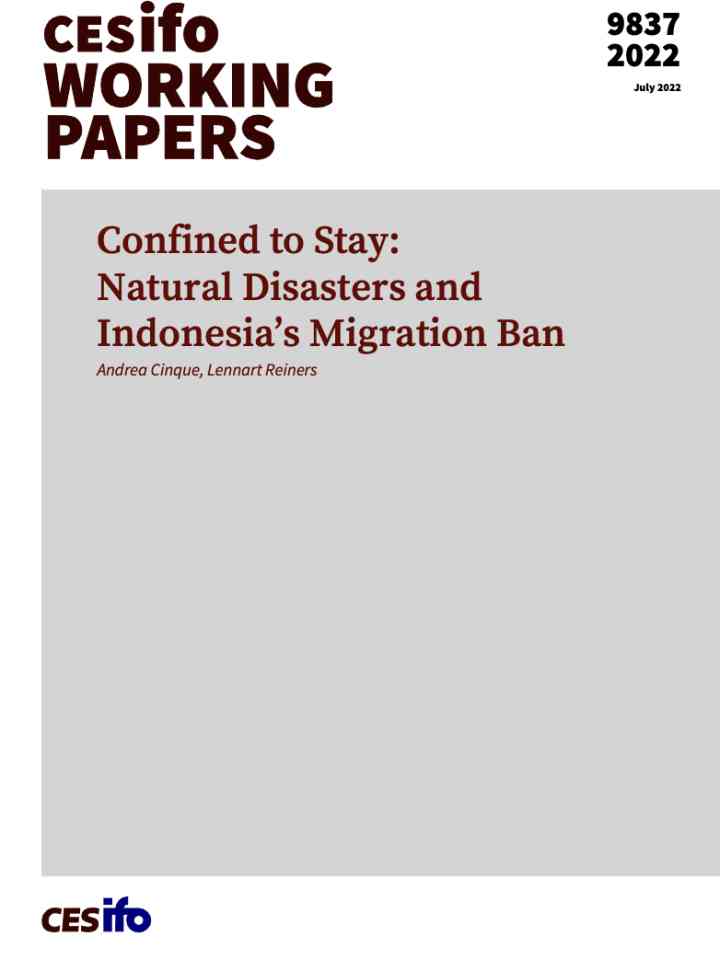Confined to stay: Natural disasters and Indonesia's migration ban
This paper investigates the effects of international migration restrictions on communities’ capacity to absorb income shocks after natural catastrophes. Researchers adopt the implementation of an emigration ban on female Indonesians as a natural experiment. After an array of violent assaults against female servants in Saudi Arabia, the Indonesian government issued a moratorium in 2011, preventing millions of female workers from migrating there as domestic workers.
In Indonesia, a country with long emigration history prone to climatic changes, a ban preventing all women to emigrate to Saudi Arabia as domestic workers was abruptly implemented in 2011. Exploiting this large-scale natural experiment in a triple difference analysis, researchers show that villages whose migratory opportunities were curtailed experienced a 13% increase in poverty when hit by disasters. The results suggest that the aim of the Indonesian government to protect citizens overseas by inhibiting emigration came at a cost for Indonesian communities confined to stay. The burden of this policy was particularly high for areas relying on rainfed irrigation for rice production, a sector that absorbed many would-be international emigrants after the ban.
Explore further
